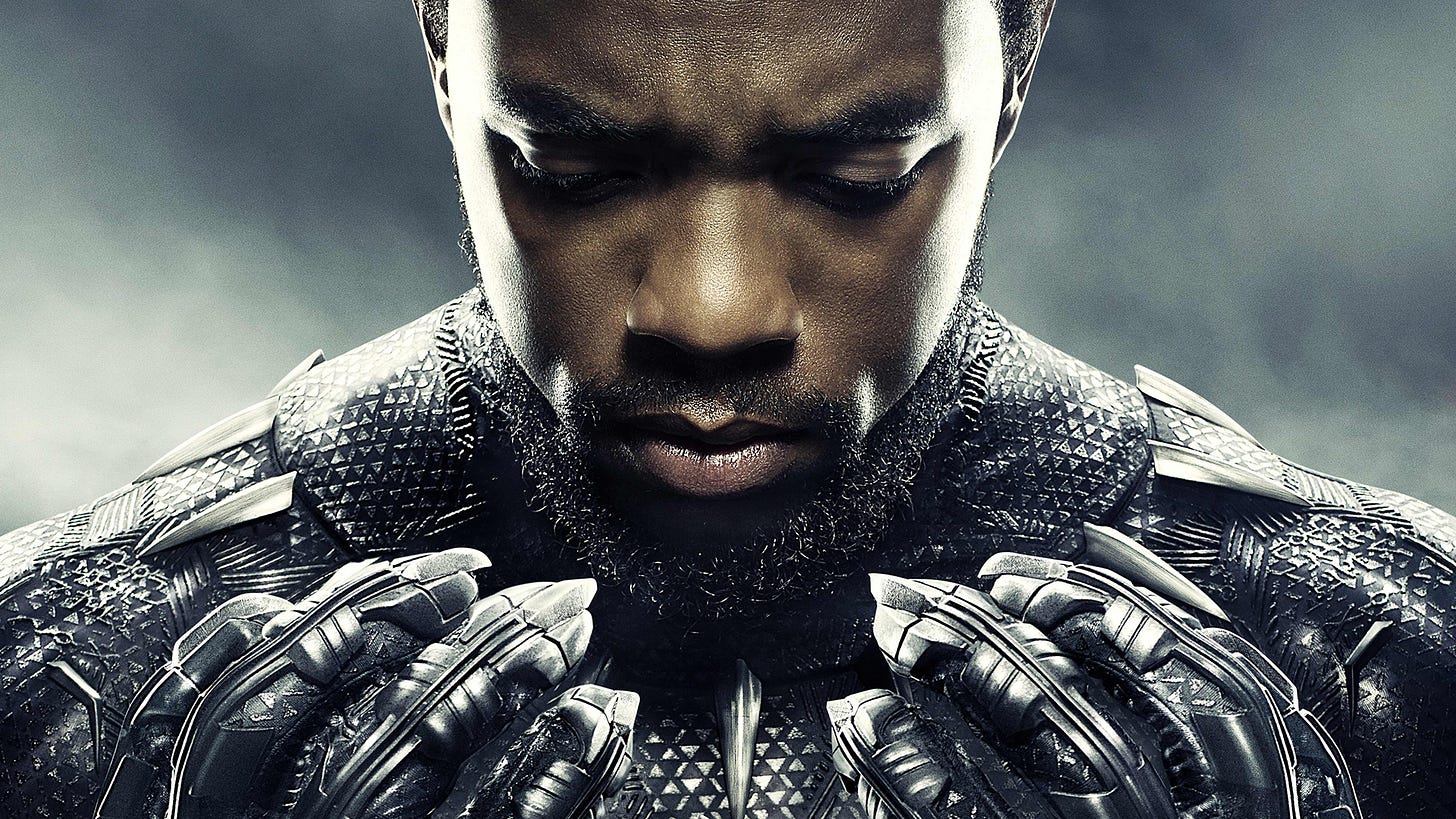On August 28, 2020, it was announced Chadwick Boseman, celebrated star of Marvel’s Black Panther, died of colon cancer at the age of 43, on the same day as Major League Baseball celebrated Jackie Robinson Day, whom Boseman played in the outstanding biopic 42, as well as the anniversary of Martin Luther King Junior’s ‘I have a Dream’ speech.
It came outta the blue. He kept it private, even from his closest friends and fellow Marvel icons. The world was shocked, mourning the loss of King T’Challa, Boseman’s seminal role, a cinematic touchstone that showed whiteboy mentality in Hollywood was errant all along in its certainty a Black-led movie with all Black faces in major roles wouldn’t sell, which a billion dollars later, proved wildly inaccurate.
Black Panther remains one of Marvel’s best flicks, not simply because it was a good story well told, but because it was a cultural transition signaling the onset of a new era for Black America and Black culture, one that would hopefully cross genres and studio preferences to show that Black stories could be equally embraced and profitable.
Boseman often advocated the advancement of Black representation, notably during a speech at the 2019 Screen Actors Guild Awards:
“We know what it’s like to be told there’s not a screen for you to be featured on, a stage for you to be featured on. We know what it’s like to be the tail, not the head. We know what it’s like to be beneath, but not above. And that is what we went to work with every day. Because we knew not that we would be around during awards season or that it would make a billion dollars, but we knew we had something special we wanted to give to the world – that we could be full human beings in the roles we were playing.”
And that’s something Boseman did in full, whether he was playing Thurgood Marshall in Marshall or Jackie Robinson in 42 or James Brown in Get On Up. The dude was a talented actor at the top of his game, a ceiling smasher and ground breaker. Beyond all that watershed distinction, losing Boseman, in that fucking year of all years, was yet another devastating blow to the Black community.
NBA star LeBron James noted, in referring to the losses of Bryant and Boseman: “Losing Black Mamba and Black Panther, we can all agree 2020 is the shittiest year.”
Whether it was famous icons like Kobe and Chadwick, or whether it was formerly anonymous citizens like George Floyd or Breonna Taylor or Elijah McClain, it mattered little. Black losses continued to surge, some through rhyme and reason, some simply random, yet the tragic effect is no less on an already exhausted populace.
Black Panther was essentially the first time Black children finally got to see a full bore Black superhero save the day onscreen. A trend started online, where parents posted clips of saddened Black children having funerals for their Black Panther action figures surrounded by fellow Avenger action figures mourning him. Fucking heartbreaking.
Eisa Nefertari Ulen, a contributor at the Hollywood Reporter, penned a lovely homage to Boseman, wherein she extolled the promise of his take on old school models of Black heroes:
“When we say Wakanda Forever, we are saying Africa Forever. We are saying Black Life Forever. We are saying we, beautiful, Black people, despite everything this wretched year and the 400 other years have done to us, we, each person and all our People, are Forever.”
I noted this event in the real time scribing of that year’s diary, but even now four years later, it’s still, again, not my row to hoe. I just thought I ought to include his passing as another seminal event in the semi-apocalypse of 2020. The world became a poorer place with his absence. And it wasn’t doing too good as it was. We didn’t need any more of that at the time. We were at maximum density. But 2020 just kept pushing the envelope.
And it wasn’t finished yet.
*Compiled from August 28, 2020




